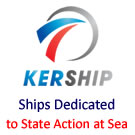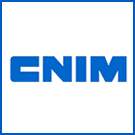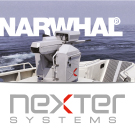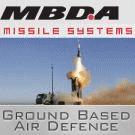At the Navy League’s Sea-Air-Space 2018 exposition currently held near Washington D.C., General Atomics is showcasing for the first time the design of its MQ-25 proposal.
 MQ-25 scale model on General Atomics' booth at Sea Air Space 2018
MQ-25 scale model on General Atomics' booth at Sea Air Space 2018
The U.S. Navy MQ-25 program calls for robust unmanned refueling capabilities that will extend the combat range of deployed Boeing F/A-18 Super Hornet, Boeing EA-18G Growler, and Lockheed Martin F-35C fighters. The Navy's goal for the aircraft is to be able to deliver 15,000 lb (6,800 kg) of fuel total to 4 to 6 airplanes at a range of 500 nmi (580 mi; 930 km).
 General Atomics MQ-25 is fitted with the Super Hornet's landing gear and arresting hook.
General Atomics MQ-25 is fitted with the Super Hornet's landing gear and arresting hook.
At Sea Air Space 2018, a GA-ASI representative explained that the company's proposal is a purpose built aircraft based on the proven Avenger series of UAV (Predator C). The platform has been structuraly reinforced for carrier operations and it has been fitted with a large number of additional systems.
 The MQ-25's wings and vertical stabilizers can be folded to lower its footprint on deck.
The MQ-25's wings and vertical stabilizers can be folded to lower its footprint on deck.
The aircraft is fitted with Pratt & Whitney's high-bypass PW815 commercial engine, an engine proven aboard the Gulfstream G600. The PW815 was intentionally designed with availability in mind. It is designed to be the easiest engine in its thrust class to access and maintain. Pratt & Whitney has extensive, recent experience meeting Navy propulsion requirements on the EA-6B (J52 engine) and the F-35 (F135 engine), as well as unmanned aircraft experience from the X-47B program (F100 engine).
 An MQ-25 refueling an F-18. General Atomics picture.
An MQ-25 refueling an F-18. General Atomics picture.
GA-ASI's MQ-25 is fitted with the same landing gear and arresting hook as on the F-18 Super Hornet.
The aircraft has provision (space available) for future growth, including ISR and Strike missions.










